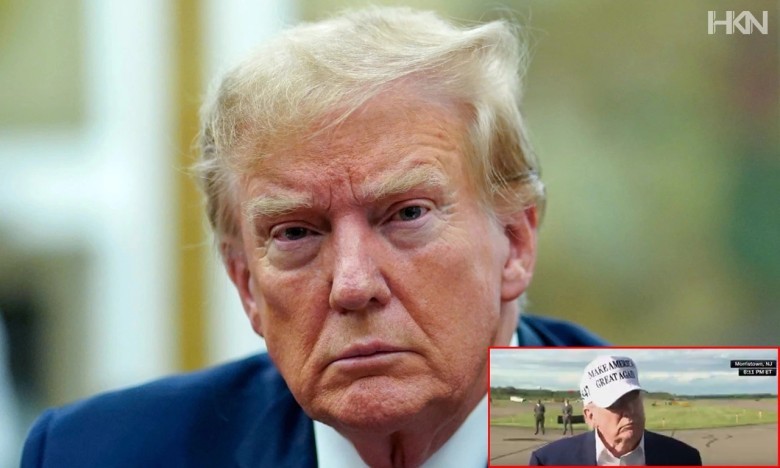views

President Donald Trump said Sunday that the United States must focus on producing tanks not T-shirts and stressed that his trade strategy is designed to boost military and high-tech manufacturing. Speaking in New Jersey before boarding Air Force One Trump stated clearly that the goal is not to bring back sneakers and socks production. He wants America to lead in building computer chips military equipment and advanced ships. Trump was backing up Treasury Secretary Scott Bessent who earlier said that reviving the textile sector was not a priority.
“We’re not looking to make sneakers and T-shirts. We want to make military equipment. We want to make big things. We want to make, do the AI thing,” said President Trump.
Trump's remarks angered many in the apparel industry including the National Council of Textile Organizations and the American Apparel & Footwear Association. They argue that pushing more tariffs will only hurt an already struggling sector. Steve Lamar president of the AAFA warned that 97 percent of clothes and shoes sold in the US are imported and higher tariffs will raise input costs and burden working families. Trump dismissed these concerns and doubled down on the need to prioritize national security industries.
“Defense First” Vision Faces Industry Pushback
On Friday Trump had proposed a 50 percent tariff on European Union goods starting June 1. That raised fears of retaliation and price hikes on consumer items including technology and apparel. However he later extended the deadline to July 9 to allow more talks. Trump also floated a 25 percent tariff on all imported iPhones which would impact Apple and its customers heavily. He emphasized that the US must take bold steps to control its manufacturing base and reduce reliance on foreign products. Industry leaders are urging a more balanced approach that supports both national defense and domestic production jobs.
















![UC Davis Showdown: Student Shuts Down Hater with Powerful Defense of Trans Community [WATCH]](/upload/media/posts/2025-04/11/uc-davis-showdown-student-shuts-down-hater-with-powerful-defense-of-trans-community-watch_1744363407-s.jpg)


